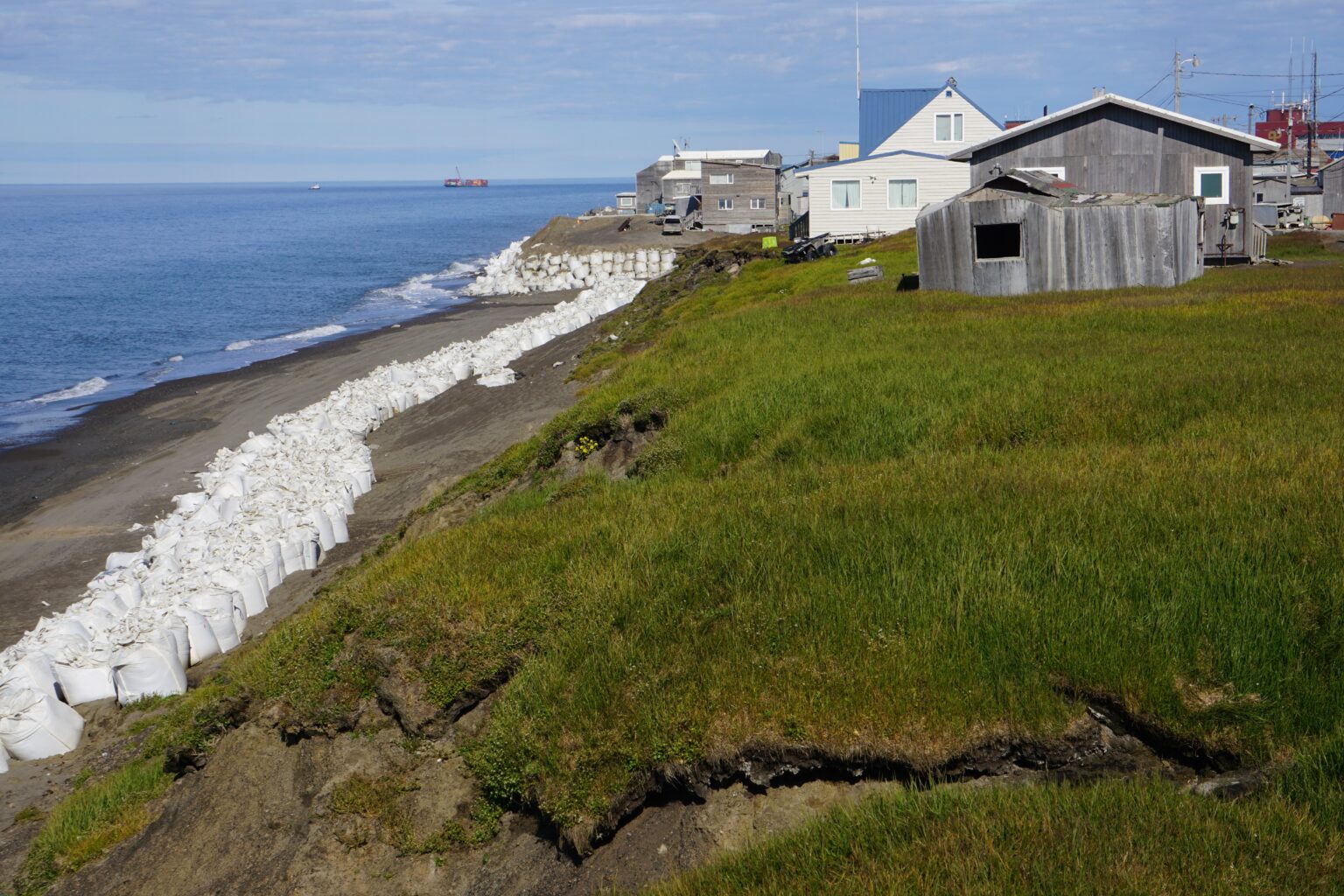
Federal officials have recommended that Alaska get $78.9 million for projects to make coastal communities better prepared to address climate change.
The National Oceanic and Atmospheric Administration said Friday it chose three Alaska projects to be among the 19 selected through the agency’s Climate Resilience Regional Challenge program. In all, $575 million in nationwide funding is recommended for the projects chosen in the competitive process, NOAA said.
Of the $78.9 million recommended for Alaska, nearly $75 million is for an Alaska Native Tribal Health Consortium project to assist Native communities that are adapting to climate change. ANTHC’s project aims to help nearly 100 communities address coastal problems like rapid erosion and permafrost thaw, which in turn have led to concerns about food sovereignty, plans for community relocation and other changes, NOAA said.
In a statement released Monday, ANTHC celebrated the award.
“This is the single largest federal grant focused on climate resilience in Alaska Native communities in state history. The recommendation of this funding not only acknowledges Alaska’s Tribes as the rightful leaders in climate change and adaptation but also equips us with the resources necessary to start meeting the infrastructure needs of the many environmentally threatened communities throughout the state,” Natasha Singh, ANTHC’s interim president and chief executive officer, said in the statement. “Baasee’ to the many leaders at NOAA, the U.S. Department of Commerce, and Alaska’s Congressional Delegation for championing this historic funding.”
Another $2 million is recommended for a Bristol Bay planning program to be conducted by the Bristol Bay Native Association, NOAA said. The third selected project, recommended to get nearly $2 million, is for creation of a regional Bristol Bay “guardians” program, similar to the Canada’s Indigenous Guardians program, to help guide resource and land management, NOAA said. That project is to be jointly managed by the Nature Conservancy and the Igiugig Village, a tribal government.
“Alaskan communities are on the frontlines of the climate crisis. Reducing risks for people and infrastructure are critical components in creating a climate-resilient future,” NOAA Administrator Rick Spinrad said in a statement.
NOAA’s Climate Resilience Regional Challenge came from the Inflation Reduction Act, NOAA said.
Friday’s announcement follows previous NOAA announcements of funding for Alaska climate-resilience projects, with money made available from the Inflation Reduction Act. Congress passed the act in 2022 without any Republican votes.
In June, the agency said it is investing $2.3 million into the Indigenous Sentinels Network program at St. Paul Island. The program was created by the Aleut Community of St. Paul Island. The money awarded is part of a $60 million national package from NOAA’s Climate-Ready Workforce initiative.
In February, NOAA announced an award of $1 million in multiyear funding for the Alaska Fisheries Science Center Indigenous Engagement Program. The aim is to boost tribal involvement and use of Indigenous knowledge in NOAA Fisheries management, the agency said.




